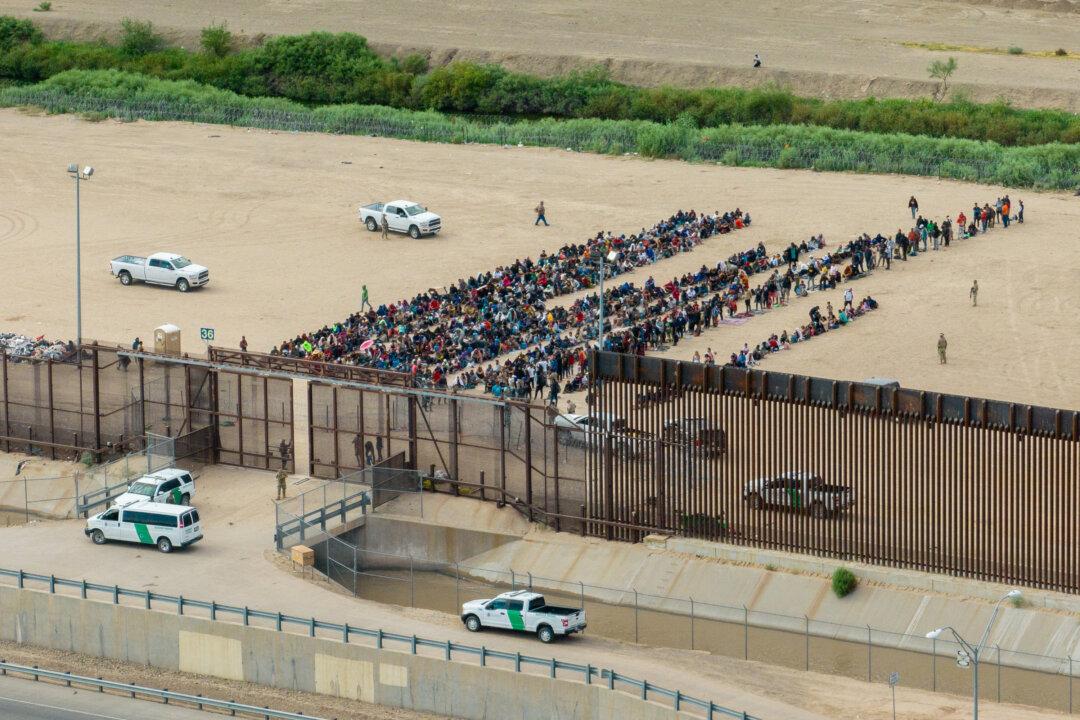The Biden administration, in an about-face to its previous stance, declared on Oct. 5 that there’s an “immediate need” to expedite the construction of the U.S.–Mexico border wall in Starr County, Texas, in response to the rapidly growing influx of illegal immigrants.
Department of Homeland Security (DHS) Secretary Alejandro Mayorkas said he waived dozens of federal regulations—26 in total—in order to fast-track the construction of roads and barriers along the southern border in Texas.





